The Camera That Stole Our Memories
What happens when we outsource our experiences to devices, and how the humble pencil can improve our memory.
Hello my lovely
Picture yourself in this perfectly ordinary scenario…
You reached for your phone to capture the perfect sunset, the birthday surprise, your visit to that must-see exhibition...
Click!
The moment is saved forever. Or is it?
What if I told you that the very act of taking that photo makes you less likely to remember the event?
The truth is your camera roll holds thousands of digital ghosts. Moments you thought you were preserving but can barely remember experiencing.
While your phone's memory expands, yours actually shrinks…

The Photo-Taking Impairment Effect
Psychologist Linda Henkel proved this unsettling truth when she took participants through an art museum. Those who photographed the artworks remembered fewer details, had hazier impressions, and couldn't recall where things were located nearly as well as the ones who simply looked with their own eyes.
She calls this the ‘photo-taking impairment effect,’ and it reveals a troubling trade-off: every time we document our lives, we risk forgetting how they actually felt to live.
As Henkel explains:
"When you take a photo of something, you're counting on the camera to remember for you. You're basically saying, 'Okay, I don't need to think about this any further. The camera captured the experience.'"
Henkel's research reveals something profound about how our brains work. Our attention shifts from experiencing to documenting, from being present to being productive.
The camera didn't capture the experience at all. It captured light and shadow, pixels and data. The warmth of the moment, the way it made you feel, and the small details actually exist in your memories.
The Selfie Trap
Henkel's team discovered something even more creepy about our selfie-obsessed culture. When participants posed next to objects instead of simply photographing them, their memories became even more fragmented.
Being in the photo transformed them from participants into observers, as if they were watching their own lives from the outside. Meanwhile, those who stayed behind the camera maintained that crucial first-person perspective.
It's a stark reminder that when we're constantly performing our lives for the camera, while it can be a tool of self-expression, we risk becoming strangers to our own experiences.
The Power of Focus
Before you dramatically delete your camera app, here's the encouraging bit: Henkel found that when people zoomed in on specific details while photographing, their memories of the object/scene actually improved. They recalled the detail they focused on and the entire scene more clearly than those who didn’t photograph it at all.
The magic ingredient here is Attention. Zooming in demanded focus. It turned mindless clicking into active looking. Henkel explains:
"This suggests that the additional attention and cognitive processes engaged by this focused activity can eliminate the photo-taking-impairment effect,"
So the lesson isn't to bin your camera but to use it with more intention. Make it a tool for deeper seeing, not a substitute for actually experiencing life.
John Ruskin had the Antidote 150 years ago!
The brilliant English art critic John Ruskin understood this long before smartphones were even a twinkle in Steve Jobs' eye. Initially fascinated by photography, he gradually grew wary of its power to distance us from genuine experience.
A man after my own heart, his solution was…yes, you’ve guessed it…drawing. Not to become the next Picasso, but to truly see the world around us.
Ruskin painted this vivid comparison:
Let two persons go out for a walk; the one a good sketcher, the other having no taste of the kind. Let them go down a green lane. There will be a great difference in the scene as perceived by the two individuals. The one will see a lane and trees; he will perceive the trees to be green, though he will think nothing about it; he will see that the sun shines, and that it has a cheerful effect; and that’s all!
But what will the sketcher see? His eye is accustomed to search into the cause of beauty, and penetrate the minutest parts of loveliness. He looks up, and observes how the showery and subdivided sunshine comes sprinkled down among the gleaming leaves overhead, till the air is filled with the emerald light. He will see here and there a bough emerging from the veil of leaves, he will see the jewel brightness of the emerald moss and the variegated and fantastic lichens, white and blue, purple and red, all mellowed and mingled into a single garment of beauty. Then come the cavernous trunks and the twisted roots that grasp with their snake-like coils at the steep bank, whose turfy slope is inlaid with flowers of a thousand dyes.
Is not this worth seeing? Yet if you are not a sketcher you will pass along the green lane, and when you come home again, have nothing to say or to think about it, but that you went down such and such a lane.”
Ruskin's sketcher doesn't just see a lane, they see light dancing through leaves, moss glinting like jewels, roots grasping like serpents. They see poetry where others see pavement.
So next time you want to truly soak in a moment, to let it seep into your bones and become part of your story, try this wonderfully rebellious thing: put the camera away!
Instead, grab a pencil and paper and draw what you see.
Your drawing might be wonky, your proportions off, and it might just look like a hot mess on the page. It doesn't matter one bit. Drawing forces you to slow down, notice, and translate the world through your hand and eye. Something magical happens, and the moment becomes yours in a way no photograph ever could.
"Cameras, as amazing as they are, can’t compare to what the brain is capable of with input from the eyes and ears. Cameras are a lesser version of the human information-processing system."
Psychologist Linda Henkel
Reflection
Your camera captures one moment, frozen in time. Your brain, however, captures the story: the anticipation before, the emotion during, the reflection after. It weaves sights, sounds, smells, and feelings together into something far richer than any photograph could ever offer.
Of course, I'm not saying never take photos - that would be ridiculous (and hypocritical, given my stuffed camera roll!). Plus, it’s fun looking back and reminiscing at the baby photos, bad hair-dos and nights out when that extra glass of wine may have affected your memory of the event anyway!
But maybe, just maybe, we could be a bit more intentional about it. Like the good ol’ days when we used film in our cameras and only had a limited number of photos we could actually take, so we planned them more meticulously.
The next time you're tempted to reach for your camera, pause for a second. Ask yourself:
Am I trying to capture this moment (as a way to extend and deepen it), or am I trying to escape it (because it feels too intense, too fleeting, or I'm not sure how to just be with it)?
Am I preserving a memory (trusting that the photo will help me remember the fullness of this experience), or am I avoiding the beautiful work of creating one (letting myself feel, notice, and absorb what's happening right now)?
When I take photos, am I the director of this experience or a participant in it?
I’d love to hear about your experiences in the comments.
Sometimes the answer will be to take the photo mindfully, intentionally, with focus and purpose. But sometimes the answer will be to put the device away. Trust your eyes and your heart to do what they do best: transform fleeting moments into lasting memories.
In a world obsessed with documentation, let your experiences write themselves not in pixels, but in the deeper places where real memories live.
Have an inspired, attention-fuelled day 💕
Update on the 30-day Drawing Challenge
I’m in the final week, and while this has been both a joy and a slog at times, I’m so pleased I’ve pursued it. I’ve definitely drawn from both memory and life, and sometimes a photo I took on a walk to capture the tiny details my ageing eyes miss!
I’ll be sharing the final week on Notes, Instagram & YouTube shorts - see you there.
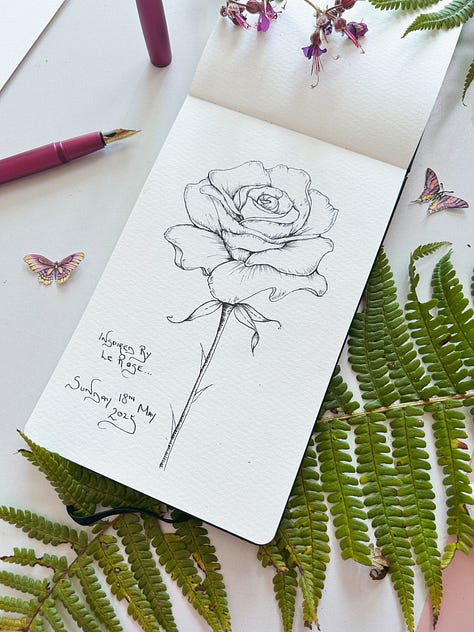
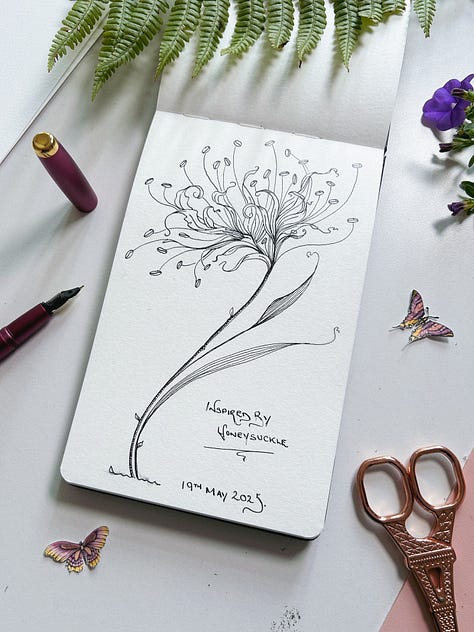
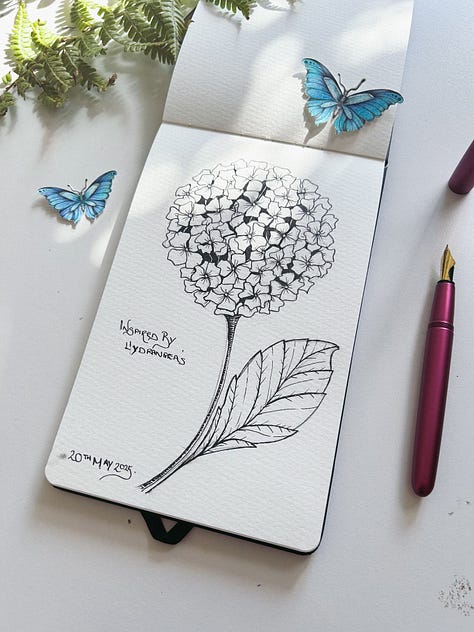
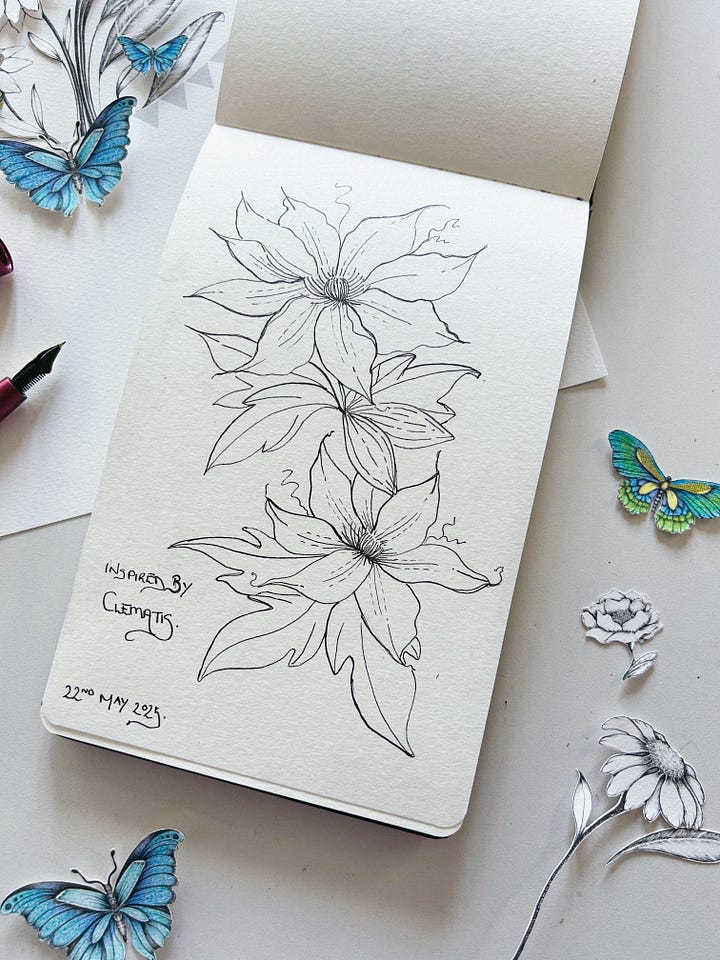
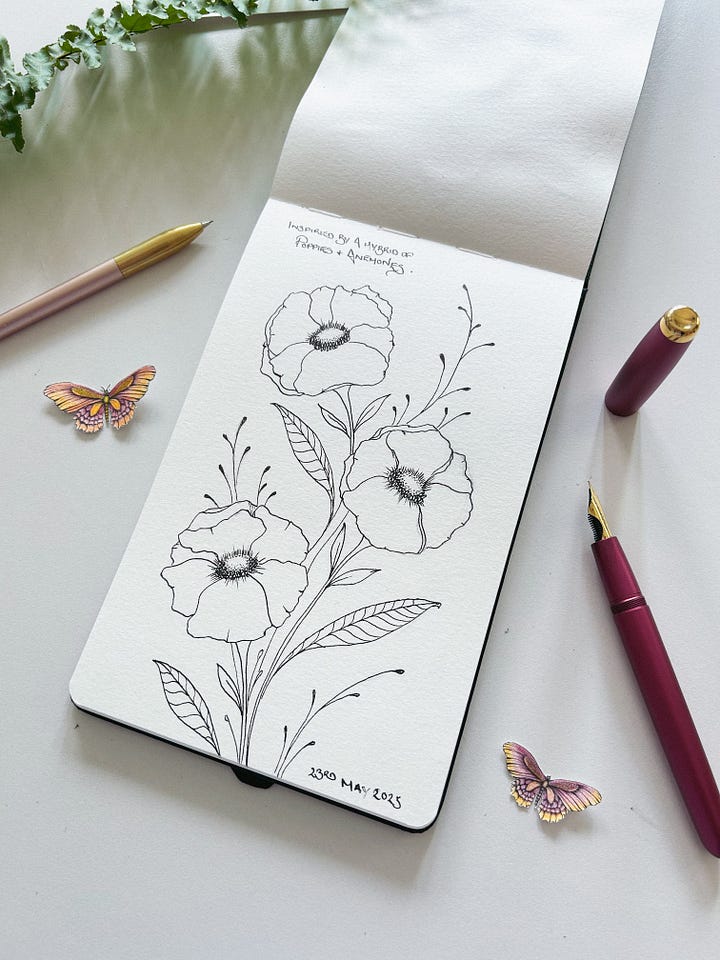
✍🏻 Want to join me?
And if you’re curious about the gorgeous pen I’m using, I’ve got a little gift for you:
✨ Use GEORGIESTCLAIR at Tom’s Studio for 10% off selected goodies (min spend £30).
(This is an affiliate code, which means I earn a small commission if you make a purchase. It doesn’t cost you anything extra; it helps support my work so I can keep making art! Thank you)







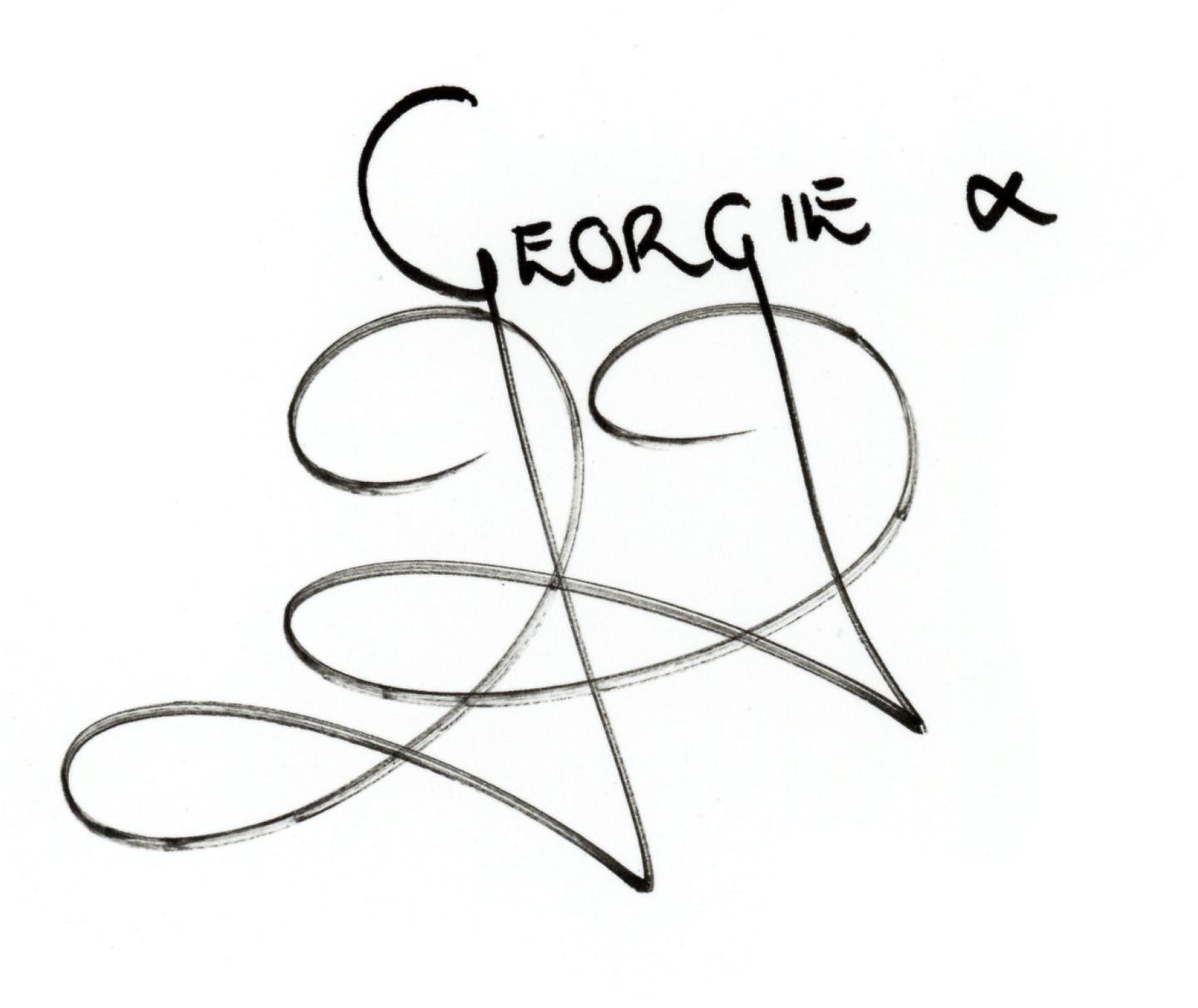


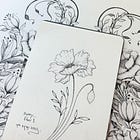
This is so interesting! I’ve noticed myself recently becoming much more hesitant about taking photos when I’m out and about for different reasons, one being that I don’t want to miss what’s actually happening in the moment, and rather experience than capture it; another being that I find a lot of pictures that I’ve taken on walks really boring and empty when I look at them, though I know that I took them because I was moved deeply by whatever I took the photo of. I did take some photos of pretty houses and plants on my walk today, though 😄
What won’t you take a photo of today?!